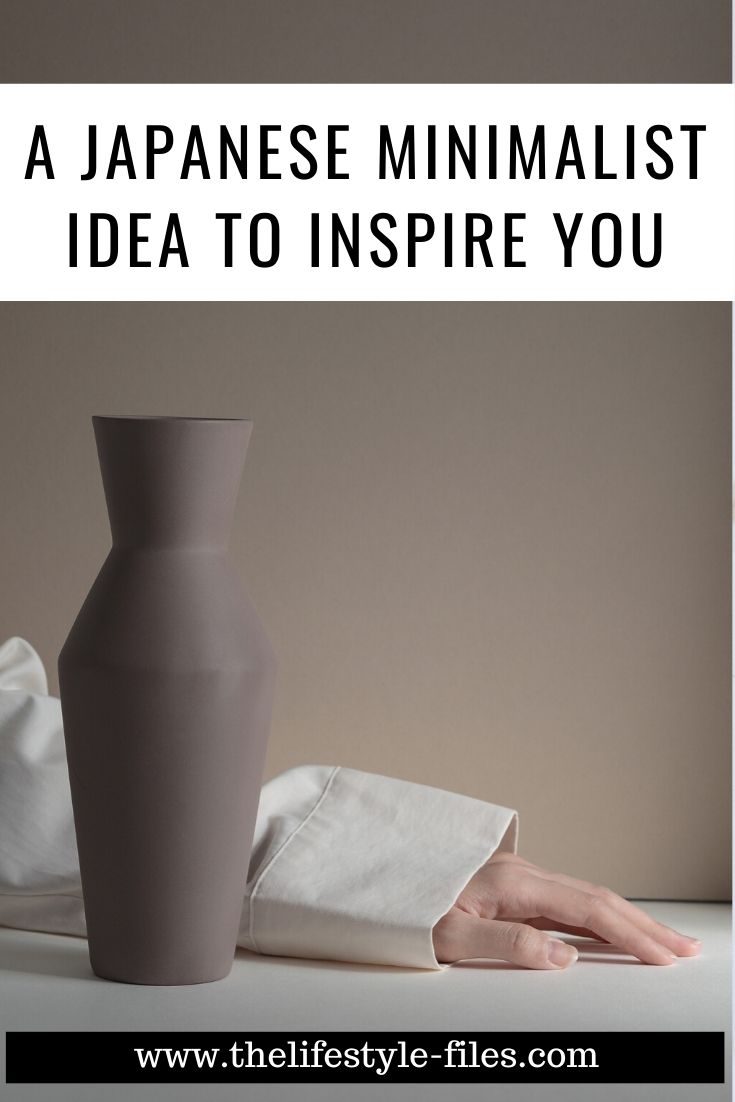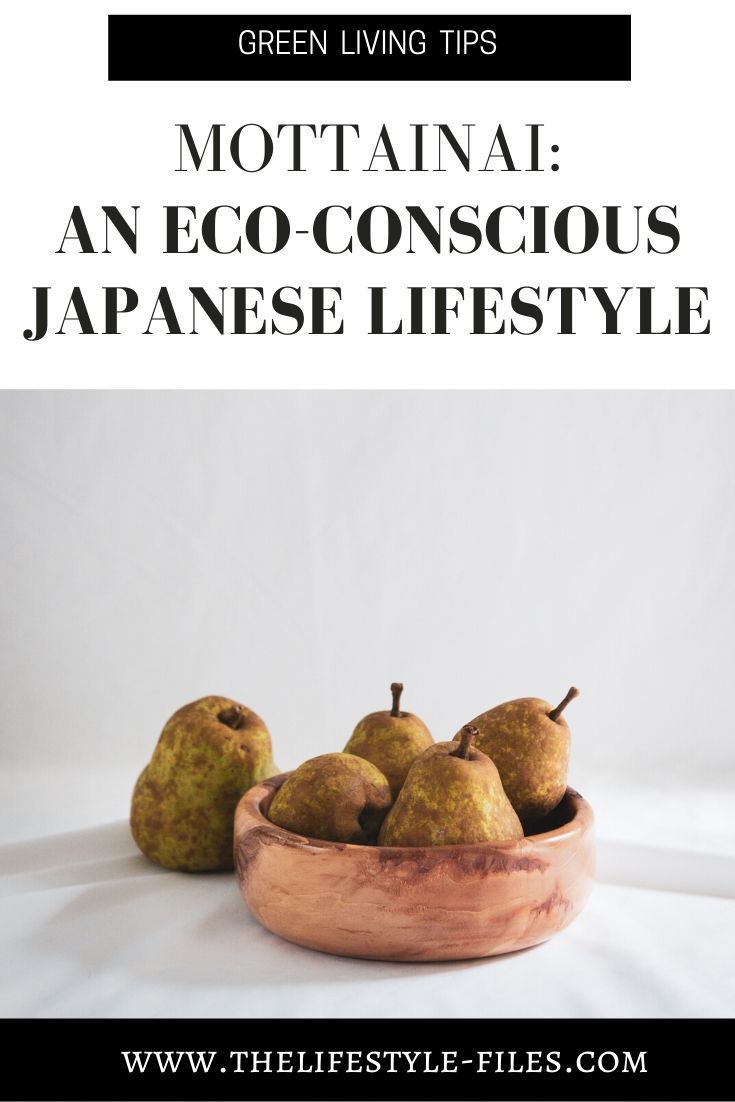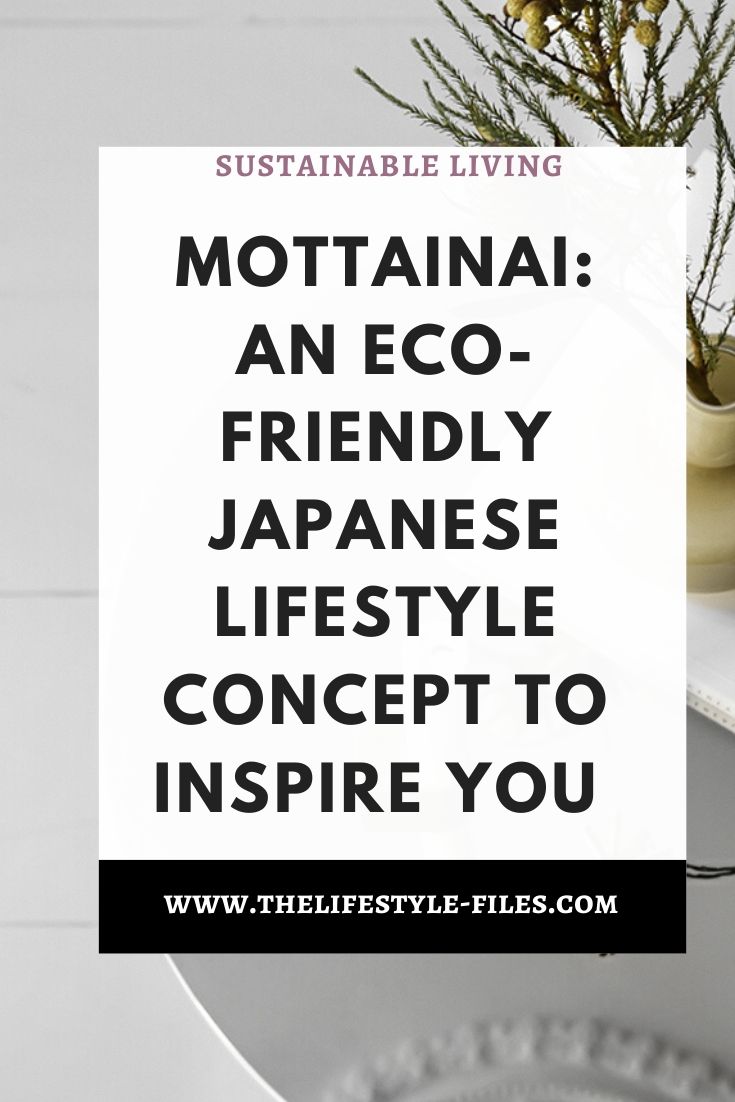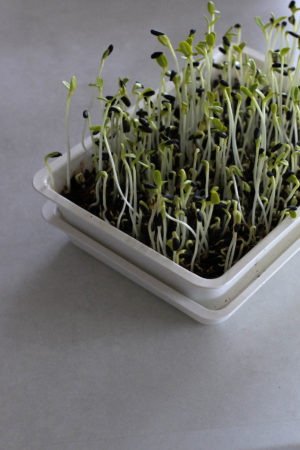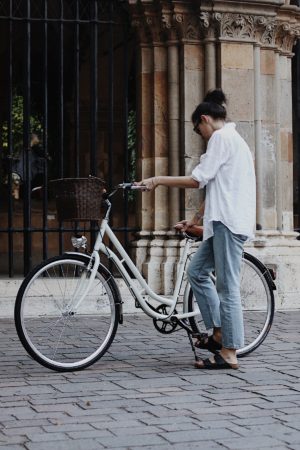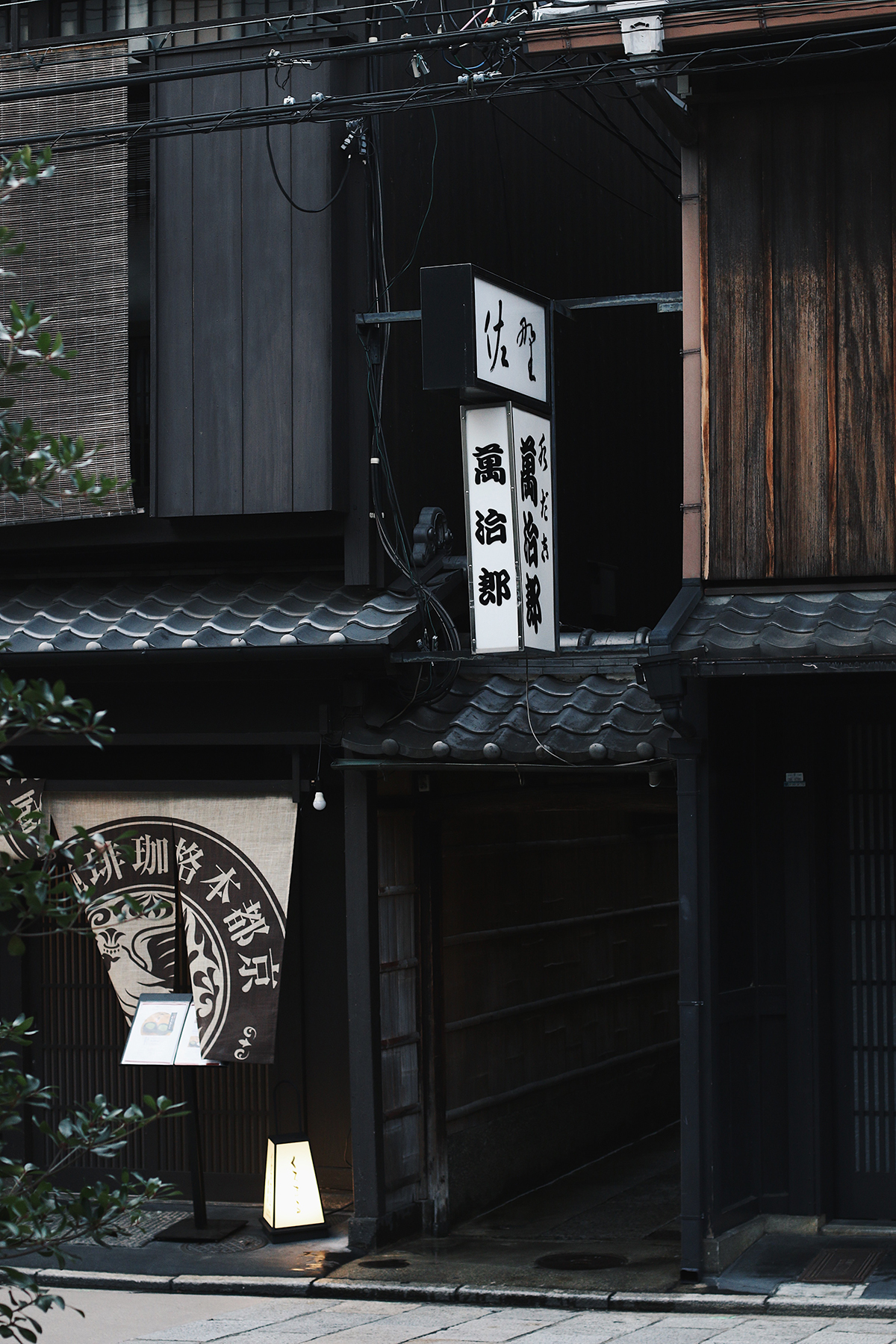
If you follow me on Instagram, you know that we were lucky enough to have spent most of November in Japan. Travel is always my ultimate source of inspiration, but this trip was on a whole new level. I’ve never been to another place that can fill everyday moments and even the most mundane details with such grace, beauty, and meaning as Japan. And this is true even for cities, not just the beautiful countryside.
Though Tokyo is one of the busiest cities in the world and Kyoto is one of the most crowded with tourists, I’ve still felt like I was getting a major life lesson in slow and intentional living. I think this may be due to a unique combination of trying to be as efficient as possible as a society (often with the use of modern technology), while also remembering and keeping old rituals and traditions.
I’ve tried to learn about Japanese culture and habits as much as I could both before and during the trip. I think this is essential for most travels, but especially when you visit such a different culture. In recent years, a lot of Japanese traditions and practices have spread across the world from Ikigai (a lifestyle concept focused on finding your reason for being) to Wabi-Sabi (the beauty of imperfection), but I rarely see the one I came to appreciate a lot: Mottainai.
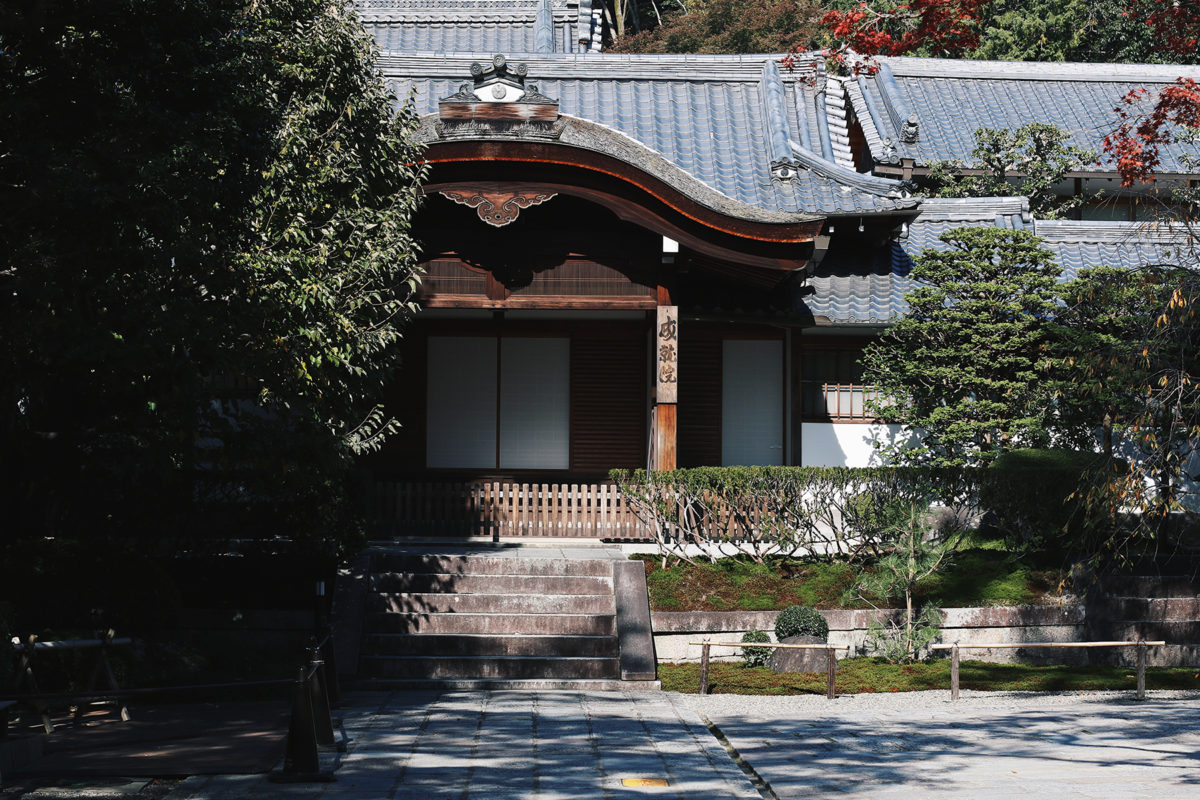
Mottainai – the art of not being wasteful
The Japanese word Mottanai is used to express regret over a resource or possession being wasted. It loosely translates to “What a waste”, and describes an attitude of trying to avoid being wasteful as much as we can. It is rooted in Japanese Buddhist philosophy that holds that we should respect and feel great gratitude towards our world and all the resources it gives us. Some people say it also has connections to the Shinto belief that objects have souls and therefore should be treated with respect. And the best way to show respect is by not wasting them.
Besides being a spiritual idea, Mottainai has clear practical implications as well. From not leaving even a single grain of rice in a plate, using all parts of an animal or vegetable for cooking, repairing clothes instead of buying new ones, repurposing and upcycling old objects and giving them new life to keep using older technology while they still function instead of upgrading, there are a million ways we can do to ensure we are using resources as efficiently as possible.
If you’re thinking that Mottainai very closely resembles modern environmental ideas, you’re of course right. Cutting down on waste, respecting the Earth’s resources and trying to live sustainably are at the center of eco-friendly living. It’s no coincidence that the environmental movement has discovered the concept of Mottainai years ago, as it perfectly corresponds to the three Rs of reduce, reuse, recycle, adding a 4th R – respect.
Mottainai may be a centuries-old Japanese tradition, but it’s also the key to our future. But even if this seems like a logical, no-nonsense concept, the sad truth is we don’t practice it near enough. Even Japan, the birthplace of Mottainai, is lagging behind. While I often saw this concept in practice, I also witnessed a tremendous amount of waste from vending machines with plastic bottles at every corner to plastic bags and single-use utensils frequently used in shops and restaurants. We collectively need to revive the spirit of Mottainai.
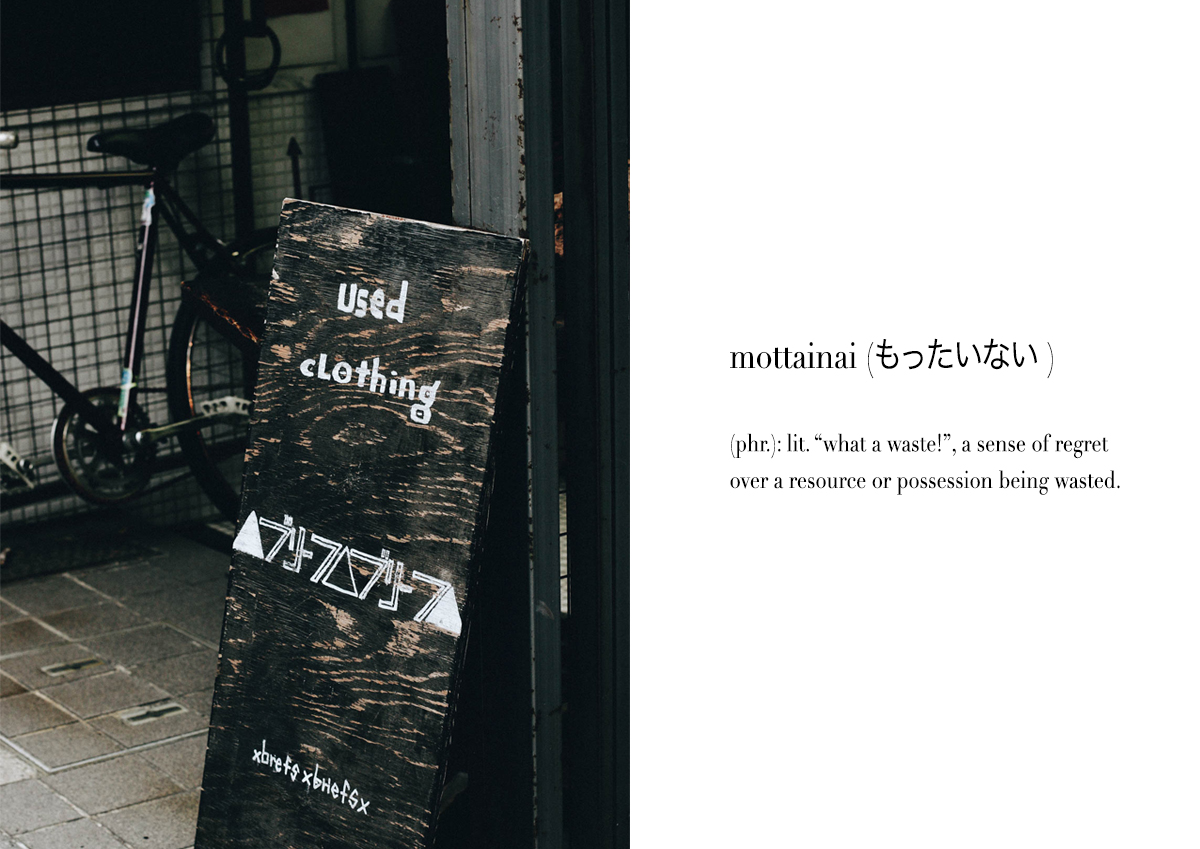
How to practice Mottainai in our everyday life
One way to use Mottainai in our life is to change our attitude about physical possessions. Instead of looking at things like they were magically produced and given to us by Amazon, we should never forget how they came to be. That it took natural resources, energy, fabrics and materials, and human labor to create that item. That it wasn’t only us who paid a price for it – the environment and other people did as well. We should be mindful of this at all times and treat objects accordingly. For this, Mottainai is a powerful way of thinking.
Also, use Mottainai to think of products and items in terms of their life cycle and try to expand them as much as possible. Take a T-shirt, for example. Buy a quality one that was made ethically and sustainably. Buy it only if you really need and love it. Wear it as much as you can. If for some reason, you do not wear it as often, but it’s still in good condition, give it to someone who could get more uses out of it (sell it, give it to a friend or a charity shop). If it cannot be donated or sold, wear it at home. If it cannot be worn anymore, make kitchen rags out of it. Use everything to the end of its lifespan.
Some practical implementations:
+ Reduce food waste by using all parts of an animal if you eat meat or vegetable. Eat a carrot while it’s fresh. If it’s not fresh anymore, use it as stock. Don’t throw out the peels, compost it.
+ Buy second-hand. Help expand the lifespan of stuff.
+ Support brands that salvage and reuse waste materials (bags from plastic waste from Patagonia, sustainable rugs from plastic waste by Ferm Living, swimsuits made from fishing nets and waste, sneakers from retrieved ocean waste by Parley x Adidas, and so on)
+ Try to buy zero waste items. But if you buy food in bottles, jars, or plastic boxes, use them as food containers later. Buy refillable beauty and household products.
+ Repair things instead of buying new ones. Recycle if cannot be repaired.
Let’s all adopt the Mottainai way of living.

